Search Results
Showing results 1 to 20 of 46

Taste Match Game
Source Institutions
In this activity (3rd activity on the page), learners taste test different foods and categorize them as sweet, bitter, sour, or salty. Learners compare their results with the group.
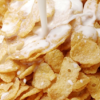
Iron for Breakfast
Source Institutions
Did you know that some breakfast cereals are fortified with ferric phosphate, while others contain tiny pieces of reduced iron?

The Gas You Pass
Source Institutions
Although we may not admit it, all humans fart or pass some gas. In this activity, learners make their own model to mimic food passing through intestines and discover what releases gas.
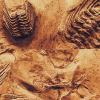
Familiar Fossils
In this activity, learners explore different types of fossils by making their out of dough and objects from around the house.
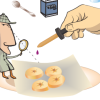
Iodine Investigators!
Source Institutions
In this activity on page 7 of the PDF (Chemistry—It’s Elemental), learners use iodine to identify foods that contain starch.
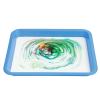
Milk Magic
Source Institutions
In this activity, learners experiment with how dish soap and fat interact by making a colorful swirl.
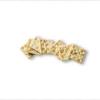
Spit Test
Source Institutions
In this biology activity (page 8 of the PDF), learners will explore how saliva assists in the beginning of the digestive process.
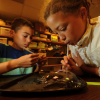
Soap Bubble Art
Source Institutions
Capture soap bubble patterns on paper! In this activity, learners can create beautiful pictures from popping soap bubbles.

Play Dough Moon Phases
Source Institutions
In this activity, young learners will learn about moon phases using materials found at home. This activity is adapted using play dough and cups to avoid food allergens and waste.

Sweet Measurements
Source Institutions
In this activity on page 3 of the PDF, learners investigate how much sugar is in a soda. Learners use sugar cubes to measure and calculate the amount of sugar in a bottle of soda.
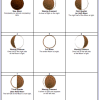
Oreo Phases
Source Institutions
In this activity, learners recreate the lunar phases using the frosting from Oreo® cookies and place the phases in order. Round cream cheese crackers can also be used if cookies are not an option.
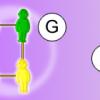
Yummy Gummy Double Helix
Source Institutions
In this activity, learners make their own edible DNA double helix out of candy and find out about the shape of DNA.
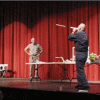
Marshmallow Puff Tube
Source Institutions
In this demonstration/activity, learners observe as a regular size marshmallow is blown through a tube made from a manila file folder.
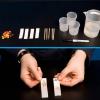
Candy Chromatography
Source Institutions
Learners analyze candy-coated sweets using chromatography. Learners use this method to separate the various dyes used to make colored candy.
Measuring Rules
Source Institutions
In this math activity, learners create their own units of measurement by making noodle rulers. Learners practice estimating and measuring objects using the noodle rulers .
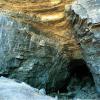
Soda Pop Cave
Source Institutions
In this geology activity (page 6 of the PDF), learners explore how carbonic acid can slowly dissolve limestone and form caves.
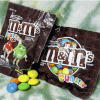
What's the Difference between Weather and Climate?
Source Institutions
In this interactive and informative group activity, learners use packages of M&M's to illustrate the difference between weather and climate.
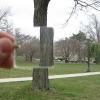
Gelatin Prism
Source Institutions
In this activity, learners make prisms from gelatin. Learners then shine light through the prisms and discover what happens. This activity introduces learners to the idea of refraction.
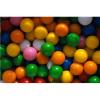
Make a Green Gumball Black
Source Institutions
In this optics activity, learners use a shoebox, colored cellophane and sunlight to "change" the colors of gumballs. Learners will be surprised when the green and blue gumballs appear black!
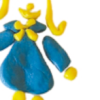
Make Your Own Sculpture Dough
Source Institutions
In this activity on page 7 of the PDF, learners follow a recipe to make a dough similar to the clay artists use to make sculptures.
